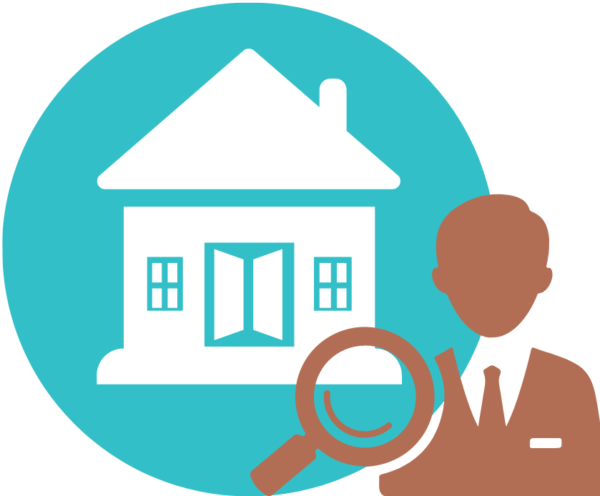Calendar Guide for Buying and Selling a Home
Calendar Guide for Buying and Selling a Home
Are you in the market to buy or sell a home?
If so, you’ll want to consult this guide to help you stay on track. The calendar offers tips for buyers and sellers, from when to start looking for a home to when to list your property.
Following these guidelines ensures a smooth transaction that meets your Buying and Selling Home needs.
Happy house hunting!
Home Buying:
At Least Six Months
Assess your situation and get your financials in order:
Before you start house hunting, it’s important to look closely at your financial situation and ensure you’re in good shape to take on a mortgage. The first step is calculating your debt-to-income ratio, which measures how much your income goes towards monthly debt payments. Ideally, your debt-to-income balance is below 36%, but anything below 43% is still considered healthy. If your credit is above 43%, you’re spending too much of your income on debt, and you may have trouble qualifying for a mortgage.
Once you’ve assessed your debt-to-income ratio, the next step is to check your credit score. A good credit score will give you a better chance of qualifying for a low interest rate on your mortgage. If your credit score isn’t where you want it to be, you can improve it by paying down any outstanding debts and making sure all of your bills are paid on time. Once you’ve taken these steps, you’ll be much better positioned to buy a home.
Start looking for homes online:
When you’re ready to start looking for a new home, one of the best places to start is online. Several websites allow you to search for homes based on your specific criteria, and you can usually narrow your search by price, location, and several bedrooms and bathrooms. You can also set up alerts to be notified once a new listing meeting your criteria is posted.
you to search for homes based on your specific criteria, and you can usually narrow your search by price, location, and several bedrooms and bathrooms. You can also set up alerts to be notified once a new listing meeting your criteria is posted.
Another advantage of starting your search online is getting a good idea of what’s available in your price range and desired location before you even begin visiting homes in person. This can save you time and effort in your home-buying journey.
Get pre-approved:
The home-buying process can be both exciting and overwhelming. One of the first steps you should take is to get pre-approved for a mortgage. This will give you a clear idea of how much you can spend on a new home and make the home-buying process go more smoothly. The pre-approval process involves submitting financial information to a lender, who will then provide you with a letter stating how much they will lend you. This letter will be based on your credit, employment, and other factors.
Getting pre-qualified is a good first step, but it’s important to remember that pre-qualification is not the same as pre-approval. Pre-qualification is based on self-reported information, while pre-approval comes from a lender and is based on verified information. Getting pre-approved will give you the peace of mind of knowing exactly how much you can afford to spend on your new home.
Three Months Out
Find a real estate agent:
Working with a real estate agent can be immensely helpful when buying a home. Not only will they be familiar with the local market and able to help you find the right property, but they will also be able to negotiate on your behalf and handle all of the paperwork associated with the purchase.
However, finding the right real estate agent can be tricky. Start by asking friends and family for recommendations, then interview a few different agents to see who is the best fit for you. Ask about their experience and strategies for finding homes that match your budget and needs. With a little effort, you’re sure to find an agent that will make buying your new home a breeze.
Attend open houses and go on home tours:
Buying a home is a huge investment, and it’s important to research before making any decisions. One of the best ways to get started is to attend open houses and go on home tours. This will allow you to see various homes and get a feel for what you want.
best ways to get started is to attend open houses and go on home tours. This will allow you to see various homes and get a feel for what you want.
It’s also a great opportunity to meet real estate agents and ask them questions about the process. Additionally, you’ll be able to get an idea of prices in your area and learn about any new developments that might be coming soon. So if you’re considering buying a home, schedule some time for open houses and tours. It could make all the difference in finding the perfect place for you.
Stay strong:
The process of buying a home can be both exciting and stressful. It’s natural to feel some anxiety during such a major financial transaction. However, it’s important to stay strong and focused throughout the process. If you keep your head up and stay positive, you’ll be more likely to get the home you want at a price you can afford.
- First, do your research and educate yourself about the home-buying process.
- Next, work with an experienced real estate agent who will help guide you through the process.
- Finally, be prepared to negotiate to get the best possible deal on your new home.
By following these simple tips, you’ll be well to becoming a successful home buyer.
Two Months
Submit or resubmit your pre-approval application:
Applying for pre-approval is an important step in the home-buying process. By submitting a pre-approval application, you are letting the lender know that you are serious about buying a home and have the financial means to do so. The pre-approval process will thoroughly review your economic history, including your income, debts, and credit score.
Once pre-approved, you will be given a loan amount when shopping for a home. Remember that pre-approval is not the same as final approval, and the lender may still need to verify your information before approving your loan. However, having pre-approval in hand will give you a leg up when finding the perfect home.
Make an offer:
Once you’ve found the perfect home, it’s time to make an offer. The first step is to consult a real estate agent to determine the property’s fair market value. Once you know the property is worth it, you can begin negotiating with the seller. If you’re working with a buyer’s agent, they will help to negotiate on your behalf.
It’s important to remember that the seller may counter your offer, so be prepared to come back with a higher price if necessary. Once you’ve agreed, it’s time to offer a formal request. This offer should include the purchase price as well as any other terms and conditions that have been agreed upon. Once the offer is accepted, you’ll begin working towards closing on the property.
Three Weeks
Enter mutual acceptance, and close the deal:
You’ve found the perfect home and made an offer. The seller has accepted, and now it’s time to move into the next phase of the home-buying process: mutual acceptance. This is when both parties agree to the terms of the sale and sign a contract. Once that’s done, the transaction will move into escrow, where buyers and sellers must deposit. The buyer’s deposit is typically 1-2% of the purchase price and is held in escrow until closing.
On the other hand, the seller’s deposit is usually 10% of the purchase price and is generally due at closing. After the deposits have been made, the buyer will have a certain amount of time to obtain financing for the purchase. Once financing is in place, the deal will be closed, and the buyer will officially become the homeowner.
Line up an inspector:
When you’re buying a home, it’s important to have a professional inspector come and take a look at the property  before you finalize the purchase. An inspector will be able to identify any potential problem areas and give you an estimate of the necessary repairs.
before you finalize the purchase. An inspector will be able to identify any potential problem areas and give you an estimate of the necessary repairs.
This can help you make an informed decision about whether or not to buy the home. In addition, an inspection can also give you some negotiating power with the seller if there are significant issues that need to be addressed. So, if you’re considering buying a home, line up an inspector as part of your due diligence.
Closing Day:
It’s the closing day! Congratulations on your new home. Although buying a home can be challenging, it’s important to remember that the hardest part is over. Now, it’s time to get your keys and start making memories in your new home. Here are a few things to keep in mind as you prepare for the closing day:
• Make sure you have all the necessary documents, including your ID and a copy of the purchase agreement.
• Inspect the property one last time to ensure everything is in order. If you have any questions or concerns, now is the time to raise them.
• Have a cashier’s check or certified funds ready to pay any remaining costs, such as the balance of your down payment or closing costs.
• Remember to change the locks as soon as you get the keys. For added security, you may also want to install a security system.
Following these simple tips ensures that closing day goes smoothly and you’re fully prepared to move into your new home.
Home Selling
Six Months
Find a real estate agent:
These days, selling a home is more complicated than simply putting up a “For Sale” sign and waiting for an offer. If you want to maximize your chances of getting a good price for your home, it’s important to find a qualified real estate agent who can help you navigate the complex process of selling a property.
estate agent who can help you navigate the complex process of selling a property.
A good real estate agent will have in-depth knowledge of the local market and can guide you through every step of the selling process, from pricing your home correctly to negotiating with buyers. In addition, a good agent can provide you with useful resources and advice, making the whole process much less stressful. So if you’re considering selling your home, take the time to find a qualified real estate agent who can help you get the best price for your property.
Look at the calendar:
When you’re ready to sell your home, one of the first decisions you’ll need to make is when to list it. The timing of your sale can have a big impact on both the final sales price and the speed at which your home sells. Here are a few things to remember as you consider when to put your home on the market.
The weather is one factor that can affect buyers’ willingness to look at homes. Winter is considered the off-season for home buying in many areas, as potential buyers are often worried about dealing with snow and ice. As a result, homes listed during the winter may sit on the market for longer than those listed during other times of the year.
However, homes listed during the spring and summer months may receive more competition from other sellers. As a result, it’s important to strike a balance between finding a time to maximize your home’s interest and avoiding an excessively crowded market.
Another factor to consider is holidays. Many families prefer not to move during peak holidays like Christmas and Thanksgiving. As a result, listing your home during these times may result in fewer showings. However, homes listed during periods of low demand may be able to negotiate a lower price with buyers who are interested in taking advantage of the slower market.
Finally, consider your circumstances when deciding when to list your home. Listing sooner rather than later may be necessary to sell quickly. However, if you’re not in a hurry, you may want to wait until after major life changes (such as a new job or a child’s birth). Considering all these factors, you can help ensure you list your home at the best possible time.
Figure out where you’re moving.
Moving can be daunting, whether upsizing, downsizing, or relocating. There are a lot of factors to consider, and it can be tough to know where to start. One of the first things you need to do when selling your home is figure out where you’re moving.
This may seem like a no-brainer, but it’s important to take the time to evaluate your options. Are you looking for a bigger home? A smaller home? A house in a different school district? Once you have a general idea of what you’re looking for, you can start narrowing your search and finding your new home.
Three Months Before:
Make repairs:
Before you put your home on the market, it’s important to ensure that all necessary repairs have been made. Buyers will be looking for signs of disrepair, which can be used to negotiate a lower price. In addition, any major problems with the home must be disclosed to potential buyers. As a result, it’s best to take care of any repair work before listing the house for sale. This will help ensure you get the best possible price for your home.
Deep clean:
If you’re selling your home, one of the most important things you can do is to give it a deep clean. This means more than just running the vacuum and doing a quick dusting. To impress potential buyers, you must pay attention to all the details, from scrubbing the floors to cleaning the fridge.
In the kitchen, for example, wash all the appliances, inside and out. Wipe down the counters and backsplash, and don’t forget to clean the sink! In the bathrooms, scrub the toilets until they sparkle and polish the mirrors until they shine. And throughout the house, be sure to declutter and organize everything, from closets and cabinets to bookshelves and countertops. A little elbow grease goes a long way in making your home look its best.
One Month
Stage your home:
There are several important factors to consider when it comes to home selling. One of the most important is staging. Staging your home means making it look its best to appeal to potential buyers. This can be accomplished in several ways, such as decluttering, deep cleaning, and rearranging furniture. Of course, everyone’s definition of “staged” may differ, so it’s important to consult with a professional before putting your home on the market. But taking the time to stage your home correctly can significantly affect how quickly it sells and how much.
Get professional listing photos taken:
When you list your home for sale, it’s important to have high-quality listing photos taken. Listing images are often the first impression potential buyers will have of your home, and you want to ensure they’re good!
Professional photographers can take flattering photos showing your home in its best light. They also have the equipment to get great shots, even in difficult lighting situations. If you’re serious about selling your home, getting professional listing photos taken is worth the investment. Buyers will be impressed, and you may even get more money for your home as a result!
One Week Before:
List your home on Thursday or Friday:
When you’re ready to sell your home, you want the best investment return. It would be best to list your home at the right time. Realtor.com says the best days to list your home are Thursday and Friday. Those are the days when most buyers are searching online for homes.
You’ll get more views and interest if you list your home on those days. And that can translate into a higher sale price. So if you’re ready to sell, list your home on a Thursday or Friday. That’s when you’re likely to get the best results.
Prepare for the open house:
The open house is a key step in the home selling process, and it is important to be prepared. Here are some tips to make sure your open house is a success:
- Start by decluttering and deep cleaning your home. This will help potential buyers to see the property at its best.
- Create a neutral atmosphere by removing personal items such as photos and memorabilia.
- Make sure all areas of the house are accessible and tidy. Clutter can make rooms seem smaller, so it is important to clear out as much as possible.
- Pay close attention to your landscaping in the days leading up to the open house. Trim hedges, pull weeds, and add fresh mulch or flowers to give your home curb appeal.
- On the day of the open house, bake cookies or prepare light refreshments for visitors. This will create a welcoming atmosphere and allow potential buyers to linger in your home.
By following these simple tips, you can ensure your open house succeeds.
After Listing Your Home:
After you’ve listed your home, it’s important to keep up with the required paperwork and sign any documents your real estate agent brings you. In addition, it’s a good idea to be available to show your home to potential buyers at their convenience.
Even with a busy schedule, it’s important to make time for showings to sell your home as quickly as possible. Additionally, it’s important always to keep your home in show-ready condition. This means regular cleaning, decluttering, and making any necessary repairs. By taking these simple steps, you can help ensure a smooth and successful home sale.
Monitor your listing:
Monitoring your home listing is one of the most important things you can do when selling your home. Your listing is a potential buyer’s first impression of your home. If you have a poorly written or unprofessional-looking listing, it will reflect negatively on your home.
In addition, potential buyers will be less likely to take your listing seriously. Therefore, ensuring that your listing is well-written and professional is important. In addition, you should regularly check your listing for errors or outdated information. By taking these steps, you can ensure that your home sells for the best possible price.
Evaluate and negotiate the offers:
After your home has been on the market for a while, you finally receive an offer. But is it the right offer? How can you tell? Here are a few things to consider:
First, evaluate the buyer’s qualifications. Do they have a pre-approval letter from a lender? Are they working with a real estate agent? Have they been through the loan process before? The more qualified the buyer is, the better.
Next, please take a look at the offer itself. Is it close to your asking price? Does it include contingencies, such as a home inspection or financing? The more favorable the terms of the offer are, the more likely you are to accept it.
Finally, consider your situation. Are you motivated to sell quickly? Do you need to sell for top dollar? Answering these questions will help you decide whether to accept, counter, or reject an offer.
Enter mutual acceptance, and close the deal:
After your home has been on the market for a while, you may be eager to sell. When a buyer makes an offer, you will enter a period of mutual acceptance. This was when the buyer and seller agreed on the purchase price and other terms of the sale. Once you mutually agree on the terms, you will sign a contract, and the sale will be final. The closing process can take a few weeks, so be patient. After the closing, you will receive your sales proceeds, and the buyer will receive the keys to your home!
Closing Day!
Congratulations on making it to closing day! This is the final step in the home selling process, and it can be both exciting and nerve-wracking. It would be best if you did a few things to prepare for closing day, but first, it’s important to understand what will happen on this day. Closing day is when the sale of your home will be finalized, and the new homeowners will take possession.
understand what will happen on this day. Closing day is when the sale of your home will be finalized, and the new homeowners will take possession.
The buyer will sign the mortgage paperwork and pay any remaining balance on the purchase price. You will also sign over the deed to the property. Once everything is signed and sealed, the keys will be handed over, and you will officially be out of the property. While it can be bittersweet to hand over the keys to your home, remember that you’re embarking on a new chapter in your life. Congratulations, and best of luck!
Conclusion:
If you are in the market to buy or sell a home, it is important to understand the process. The information provided in this guide should help you get started. Whether you are a first-time home buyer or seller or have gone through the process, there is always something new to learn. Contact Amar Realtor for more information and advice on buying or selling a home in the Bay Area. We would be happy to assist you!
Resources
https://www.hud.gov/topics/buying_a_home
https://www.consumerfinance.gov/owning-a-home/
https://www.usa.gov/buying-home
To learn more details, let’s talk with Amar REALTOR®
Let’s schedule a meeting to review all your Real Estate goals!
![]()
Please Click to schedule a time on my online calendar at no cost!
https://www.amarrealtor.com/meetingwithamarrealtor/
Contact Amar REALTOR® today for more information about Buying/Selling a Home in the Bay Area!
More Interesting Information about Bay-Area Real Estate
7 Tips for Hosting a Successful Open House for First-Time Home Sellers
Complete playbook for Home Sellers
How to Determine the Right Listing Price for Your Home
Entire playbook for first-time Home Buyers
